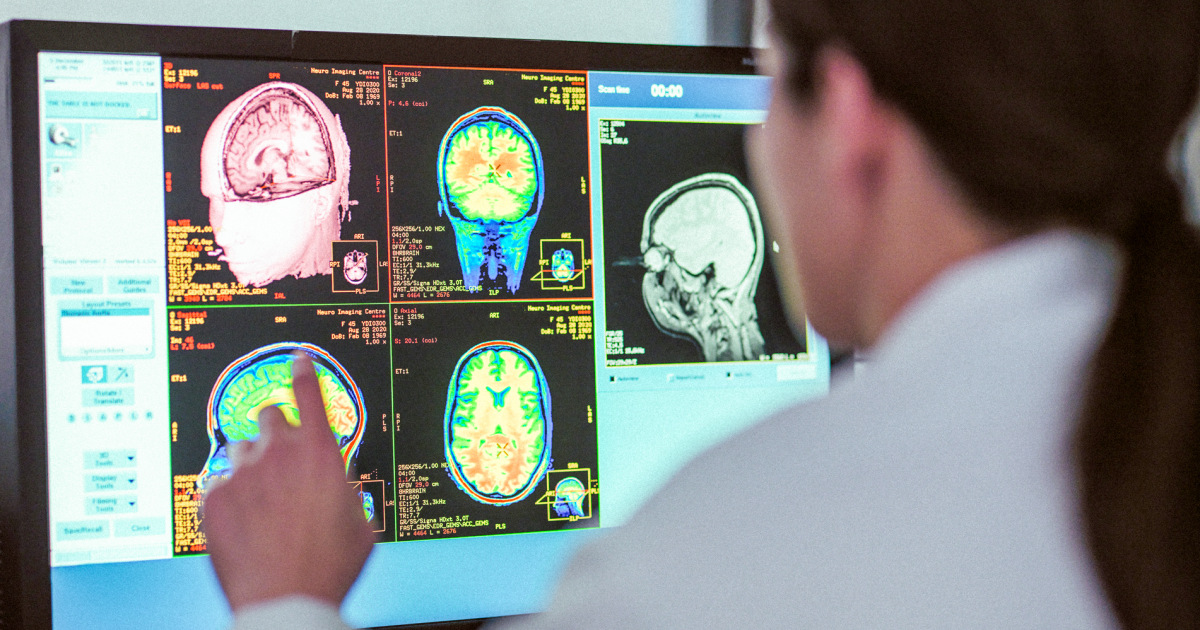Six years ago, a Canadian neurologist claimed to notice strange symptoms in a cluster of patients in New Brunswick, a province bordering Maine. According to the neurologist, Dr. Alier Marrero, the patients suffered hallucinations, spasms, rapid memory loss and the sensation that bugs were crawling underneath their skin, but their symptoms and brain scans didn’t neatly fit an existing diagnosis.
In other words, the cases were a mystery. But since then, neurologists who have reviewed the cases have identified clear diagnoses, including Alzheimer’s, Parkinson’s and cancer. A study published this week in JAMA Neurology reinforces those findings, putting the probability of a mystery disease at roughly 1 in a million.

Doctors working on the study evaluated 25 people who had been identified as part of the New Brunswick cluster. Eleven of the patients had died, so neuropathologists used autopsies to determine their illnesses. For the 14 living patients, neurologists relied on cognitive assessments, among other tests.
They concluded that all of the patients had well-known conditions such as Alzheimer’s, Parkinson’s, cancer, traumatic brain injuries or post-concussion symptoms. “We really felt we had a good explanation for 100% of the cases,” said an author of the study, Dr. Anthony Lang, a neurologist at University Health Network’s Krembil Brain Institute.
However, some doctors worry it won’t be enough to quash speculation that the cases have an unknown origin — a theory many patients and their families have clung to. According to the study authors, 52 people identified as part of the New Brunswick cluster refused second opinions, and 42 more didn’t respond to the authors’ reaching out. The study attributes that to declining trust in health institutions and the spread of misinformation on both traditional and social media.
“These were examples of misdiagnosis that then led to misinformation. And sadly, the physician involved continues to believe and convince the patients and families that they have a mysterious illness,” Lang said. Marrero took issue with the study and its findings in a statement.
“I am in profound disagreement with the study conclusions and have many questions regarding the methods and the content,” he said. “I am sure that our patients, families, and communities share the same very serious concerns.” Dr.
Valerie Sim, an associate professor of neurology at the University of Alberta who wasn’t involved in the study, said there has been no proof that the patients’ illnesses are related. In fact, she said, the cases are “so broad in their description that we could all have this mysterious illness.” “Sadly, the one thing that all the patients have in common is the same neurologist,” Sim said.
“And the patients who have been seen by other neurologists get a diagnosis of a known entity that’s not a mystery.” James Mastrianni, a neurology professor at the University of Chicago who wasn’t part of the research, said the study reinforces that “a second opinion by an expert in the field is often helpful.” An ongoing investigation The mystery illness theory gained traction in 2021 when Canadian health authorities began investigating cases based on Marrero’s reports.
But even after the investigation determined that most patients had known conditions , some families were skeptical. In November, the premier of New Brunswick, Susan Holt, called on the province’s health minister to conduct a scientific review “into the mystery brain disease.” “New Brunswickers deserve answers,” Holt said in a statement last year.
“We need to know what’s making us sick.” Some patient advocates now believe an environmental exposure is triggering the illnesses, claiming patients’ blood and urine tests show the presence of heavy metals, pesticides and rare antibodies that warrant further study. “It wasn’t ever about whether a patient could have an alternative diagnosis,” said Kat Lanteigne, an advocate from New Brunswick.
“It was what has triggered them to have this neurodegenerative disease?” Dr. Yves Léger, New Brunswick’s chief medical officer of health, said in a statement Wednesday that the new study “doesn’t change my Office’s intention to complete its own investigation into cases of undiagnosed neurological illness in New Brunswick.” His office has received 222 reports of cases identified as part of the cluster.
Marrero said he has “evaluated more than 500 patients in this cluster, and provided a significant amount of unequivocal, sometimes critical environmental exposure evidences, as well as rare autoimmune markers in many of them.” But Lang said that just because a substance is in blood or urine doesn’t mean it caused someone’s neurological symptoms. “You don’t do a shotgun approach looking for anything and everything and then finding something and claiming it’s related to what the problem is,” he said.
The challenge of diagnosing neurological issues Neurologists with no connection to the New Brunswick cases point to a few reasons advocates, doctors and government officials are still debating the cause of the illnesses. For one, they said, accurate diagnoses can take time. And some of the conditions detected in the study, like Alzheimer’s, can have complex presentations.
“It really takes a cohesive story from the family and a timeline to understand if someone is developing dementia. There can be confusing signs on a neurologic exam,” said Dr. Kimberly O’Neill, a neurologist in the NYU Langone Health Multiple Sclerosis Comprehensive Care Center.
One of the core symptoms used to identify the New Brunswick patients was rapidly progressing dementia. But families sometimes miss early signs of neurodegeneration, making it appear that dementia came on suddenly, Mastrianni said. Once debilitating symptoms arrive, patients and their families are often desperate for answers and may be reluctant to let go of the first diagnoses they get, Sim said.
“We see this all the time in medicine, that patients gravitate to a diagnosis or a group entity,” Sim said. “That’s clearly what’s happening here.” The misdiagnoses are “really a tragedy,” she added, because patients could be missing out on treatments or proper care.
.
Health

Mysterious brain diseases in Canada weren’t a mystery after all

Six years ago, a Canadian neurologist claimed to notice strange symptoms in a cluster of patients in New Brunswick, a province bordering Maine.















